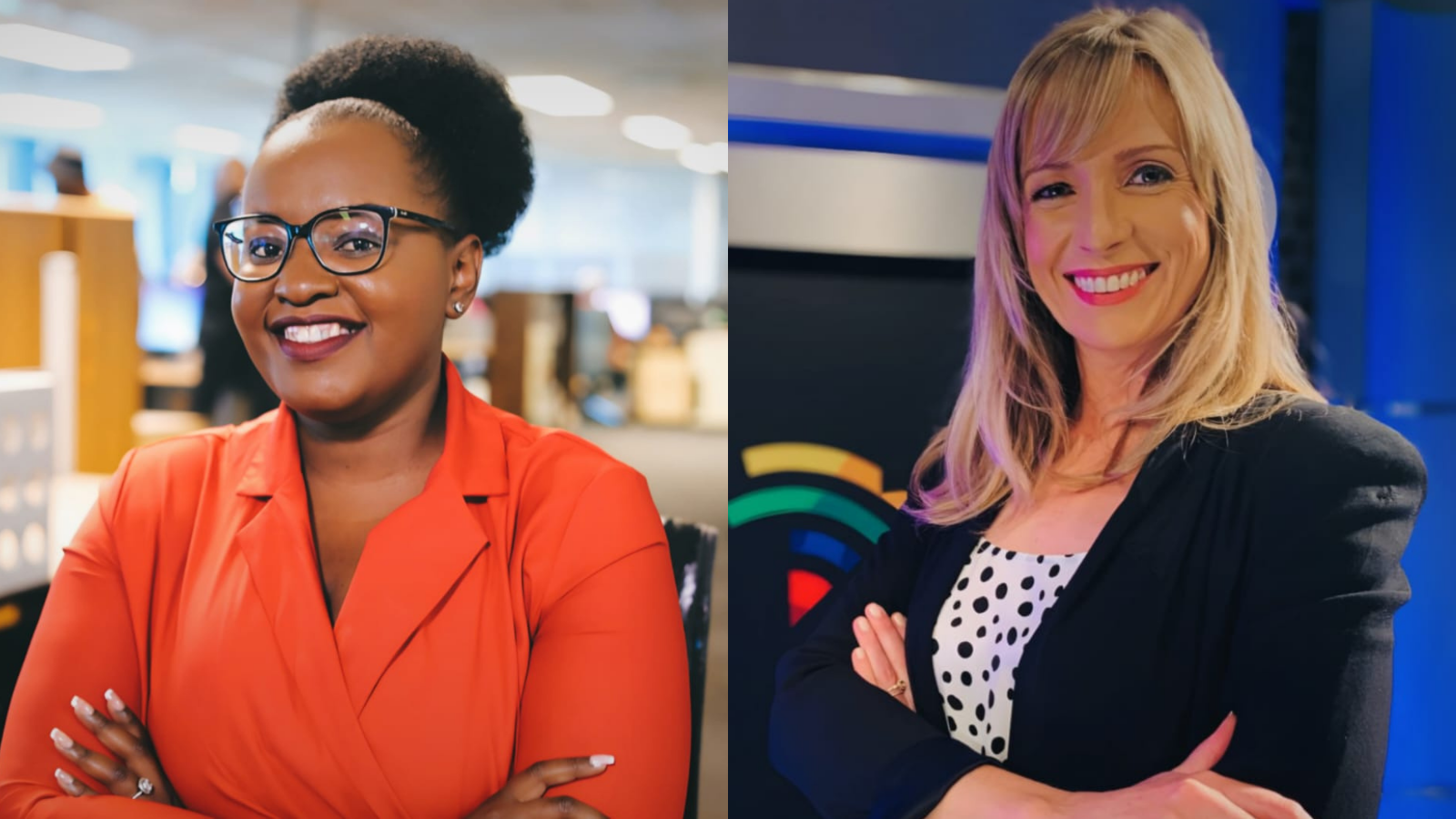South Africa: Crypto Scam Features Deepfakes of TV Anchors Bongiwe Zwane and Francis Herd
Incident cements fears that AI technology will be used to undermine credibility of journalists and news organizations
Location: South Africa
Date: November 14, 2023South Africa's media landscape faces a new threat as AI-manipulated deepfake videos of SABC anchors Bongiwe Zwane and Francis Herd circulate online, promoting fake crypto investments. The spread of these videos shows how malicious actors can capitalize on the image and credibility of public broadcast journalists to encourage people to invest in scams. The Coalition For Women In Journalism is increasingly worried by the abuse of Artificial Intelligence software to manipulate fake videos and audio of journalists. We demand that social media platforms, such as Meta and Twitter, improve their policies, ensuring these deepfake videos cannot be allowed to spread freely.
The South African Broadcasting Corporation (SABC) was compelled on November 14 to clarify that their anchors Bongiwe Zwane and Francis Herd were impersonated in deepfake videos circulating online. These videos, promoting a fraudulent investment scheme, amassed significant attention, with one featuring Herd garnering over 123,000 views on YouTube since its appearance on November 3.
The deepfakes, which included the SABC News logo and depicted a counterfeit Elon Musk promoting the scam, have raised serious concerns about the impact of such technology on the credibility of news organizations and the freedom of the press. In response to the scam, Francis Herd and Bongiwe Zwane have publicly denied any involvement in the AI-generated videos.
Moshoeshoe Monare, SABC’s Group Executive for News and Current Affairs, denounced the scam, stressing the need to safeguard the reputation of the public broadcaster and its journalists. The incident not only damages the trust in individual journalists but also poses a broader threat to media integrity, complicating the public's ability to distinguish between real and manipulated content.
This incident, alongside the AI manipulated audio of Slovakian journalist Monika Tódová in September highlights the vulnerability of media organizations and journalists to malicious actors who seek to exploit their reputation for personal gain. It also underscores the need for legal and technological measures to address the misuse of deepfake technology. Immediate regulatory action by governments is imperative to address the inherent dangers posed by manipulated AI content. Simultaneously, social media companies must shoulder responsibility for the dissemination of deepfakes through their platforms, facilitated by their marketing tools.
The Coalition For Women In Journalism expresses deep concern, yet not surprise, at the proliferation of AI-generated scam videos showcasing Bongiwe Zwane and Francis Herd. Despite the subpar quality of these videos, their rapid dissemination across online platforms raises alarms. As AI technology advances, making it increasingly challenging to differentiate between real and fake content, journalists are particularly vulnerable to manipulation. This susceptibility is heightened by the wealth of content online that features their voices, videos, and images, offering ample data for malicious use.
We call upon Meta, Alphabet, and Twitter to treat instances of deepfakes involving journalists with utmost seriousness. We also urge these tech giants to develop robust reporting tools empowering journalists to flag manipulated uses of their images and voices, facilitating the quick removal of such deceptive content. The collaborative effort between regulatory bodies and tech companies is crucial in safeguarding the integrity of journalism and protecting journalists from the escalating threat of AI manipulation.
The Coalition For Women In Journalism is a global organization of support for women journalists. The CFWIJ pioneered mentorship for mid-career women journalists across several countries around the world and is the first organization to focus on the status of free press for women journalists. We thoroughly document cases of any form of abuse against women in any part of the globe. Our system of individuals and organizations brings together the experience and mentorship necessary to help female career journalists navigate the industry. Our goal is to help develop a strong mechanism where women journalists can work safely and thrive.
If you have been harassed or abused in any way, and please report the incident by using the following form.


